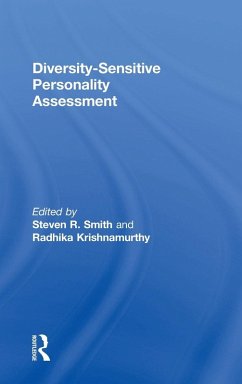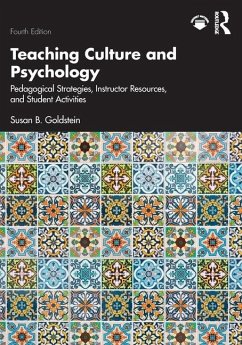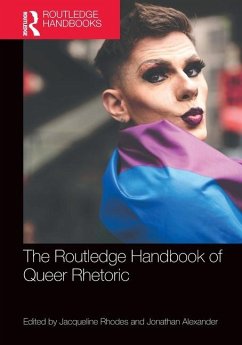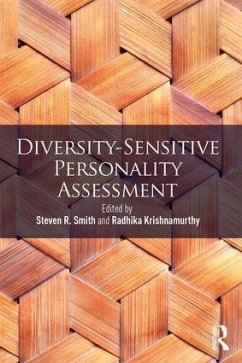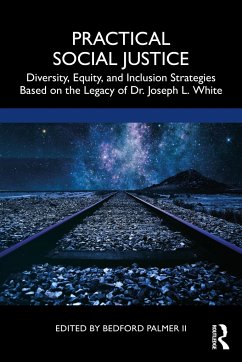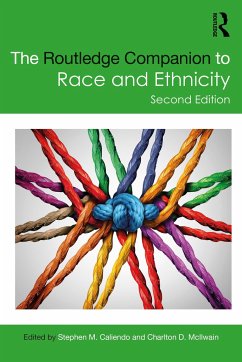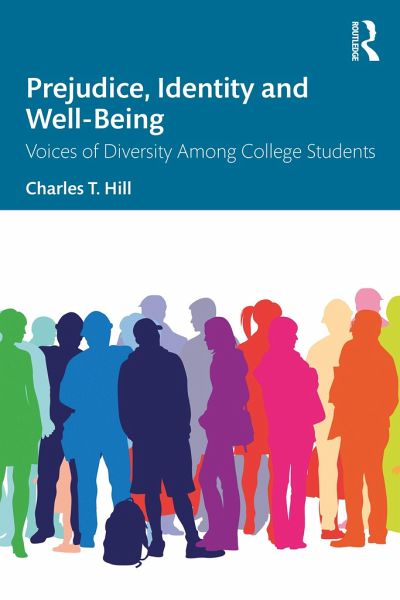
Prejudice, Identity and Well-Being
Voices of Diversity Among College Students
Versandkostenfrei!
Versandfertig in 6-10 Tagen
49,99 €
inkl. MwSt.
Weitere Ausgaben:

PAYBACK Punkte
25 °P sammeln!
This essential and timely text looks at the ways in which various identities are socially constructed by students, exploring and comparing multiple dimensions of diverse identities, and the various ways students try to fit in when faced with prejudice and discrimination.Based on more than 20 years of data collected from Multiple Identities Questionnaires, plus Self-Identity papers in the author's Diverse Identities course, this book gives voice to the diverse and intersectional identities experienced by students at a formative time in their lives. Analyzing data from more than three thousand c...
This essential and timely text looks at the ways in which various identities are socially constructed by students, exploring and comparing multiple dimensions of diverse identities, and the various ways students try to fit in when faced with prejudice and discrimination.
Based on more than 20 years of data collected from Multiple Identities Questionnaires, plus Self-Identity papers in the author's Diverse Identities course, this book gives voice to the diverse and intersectional identities experienced by students at a formative time in their lives. Analyzing data from more than three thousand college students, the book gives a uniquely comprehensive overview of identity formation, stigma, prejudice, and discrimination, which are part of conflict around the world. Author Charles T. Hill asks to what extent the students have experienced prejudice or discrimination regarding each of their identities, their own prejudice and discrimination toward others of each identity, and the importance of each type of identity for their self-concept. Split into three sections: the first part of the book gives an overview of terminologies and theoretical concepts, the second part explores the multiple dimensions of each identity using data from the MIQ interspersed with quotes from Self-Identity papers, and the third part compares and combines the different types of identities. Introduced with a foreword by Professor Emeritus of Africana Studies James M. Jones, the book opens a space to help students and others explore their identities, realize that they are not alone in their struggles with prejudice, and accept themselves with pride in their identities.
Featuring highlighted key concepts and self-reflection sections, as well as further reading, measures, and statistical results, this book is essential not only for undergraduate and graduate students in social psychology, health psychology, sociology, ethnic studies, and social work, but also for therapists, parents, teachers and practitioners running Diversity Training Programs for non-students.
Based on more than 20 years of data collected from Multiple Identities Questionnaires, plus Self-Identity papers in the author's Diverse Identities course, this book gives voice to the diverse and intersectional identities experienced by students at a formative time in their lives. Analyzing data from more than three thousand college students, the book gives a uniquely comprehensive overview of identity formation, stigma, prejudice, and discrimination, which are part of conflict around the world. Author Charles T. Hill asks to what extent the students have experienced prejudice or discrimination regarding each of their identities, their own prejudice and discrimination toward others of each identity, and the importance of each type of identity for their self-concept. Split into three sections: the first part of the book gives an overview of terminologies and theoretical concepts, the second part explores the multiple dimensions of each identity using data from the MIQ interspersed with quotes from Self-Identity papers, and the third part compares and combines the different types of identities. Introduced with a foreword by Professor Emeritus of Africana Studies James M. Jones, the book opens a space to help students and others explore their identities, realize that they are not alone in their struggles with prejudice, and accept themselves with pride in their identities.
Featuring highlighted key concepts and self-reflection sections, as well as further reading, measures, and statistical results, this book is essential not only for undergraduate and graduate students in social psychology, health psychology, sociology, ethnic studies, and social work, but also for therapists, parents, teachers and practitioners running Diversity Training Programs for non-students.








